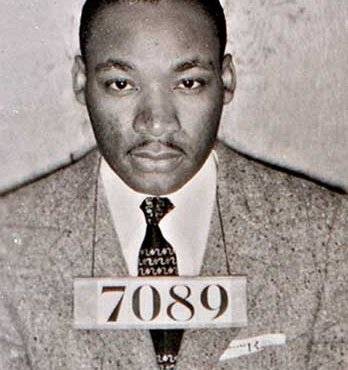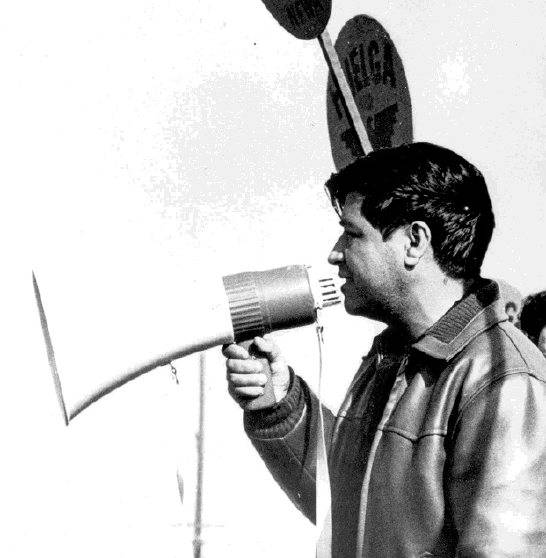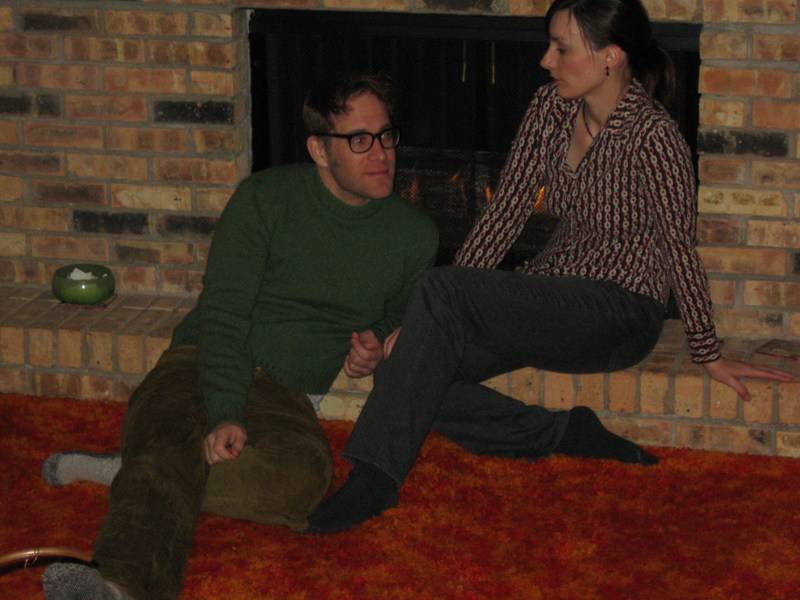 Hello to you faithful six readers who’ve clicked through to SP despite the wholly unexpected Delightful Days of July, 2009.
Hello to you faithful six readers who’ve clicked through to SP despite the wholly unexpected Delightful Days of July, 2009.
Why are you in town? Bucking the mainstream?
Furthermore, what are you doing inside? Why are you reading the interweb? The Dog Days of August should afford you plenty of opportunity to skulk in basements, wondering whether you can dig yourselves any farther from the sun. Right now, you are the beneficiary of a meteorological anomaly. Go out into it, play. Sniff stuff. Rub things. Ponder. There’s still a world out there with breathable air. Enjoy it while you’ve got it.
I need fresh air, too. I’ve been in the basement for the past two weeks, Rearranging Things.
While I was away, a minor tempest hijacked Kim Nguyen’s story about Urbana eateries.
The debate concerned tax policy. I beat the dead horse, pointing out that Urbana’s fees and taxes make Champaign an exciting option for people seeking to open businesses.
But I don’t think that’s what provoked the suggestion that I leave town: “I (and most of your neighbors?) would help you load up the truck.”
Maybe the author of that comment thinks criticism of city policy is tantamount to insulting city staff. Maybe he believes in writing only nice things — except when complaining about complaining.
I was disappointed.
We opinion writers take a lot of abuse. And that’s fair; we dish it out. But here at Smile Politely, Dan and Seth and I (and a lot of people) can write opinions that actively disagree with each other, and still encourage each other to voice opinions. The opposite is trying to silence people. The extreme opposite is to tell them that everyone hates them and they should leave town.
Moreover, we (the writers) tend to buttress our points with citations, warrant, evidence. One and two line ad hominem attack is a different animal altogether.
STICKING YOUR NECK OUT
A lot of people have done a lot of work over many years — at much personal risk — to assure civil society has well-balanced laws protecting competing rights of individuals. But there’s always the neighborhood philosopher who substitutes “common sense” for decades of research, assiduous work and delicate policy guidance. And yes, I just happen to know a neighborhood philosopher who thinks people should be free to live his way.
It is good to talk to neighbors. But that’s not the same as saying one should address one’s neighbor directly about their illegal or anti-social behaviors. The bulk of the evidence, and municipal policy (including Urbana’s) takes the opposite view. You shouldn’t.
It’s not because Urbana city staff are misanthropes and pencilnecks. The policy is the result of years of study, at various levels of sociology, psychology, urban planning and various other human behavioral sciences. There are lots of good reasons for it.
When I “came out,” I got more direct abuse from a few people. It’s true.
But the greater response comes from those who feel unready or incapable of voicing their opinions, or asserting their rights. They thank me. Then, when I ask if I can quote them, they wither. It happens again and again.
People are scared. They don’t want to get beat up. They don’t want to offend. They don’t want to discourage customers from their small businesses. (Sometimes taking a stand increases business dramatically.)
This is true, no matter the issue. But with noise nuisance, the perpetrators have fangs, wear leather, or carry weapons.
HERE, IN URBANA
Urbana is an unusually tolerant place for advocacy. Most people don’t react to activism with an offer to help you pack up and leave. Organizations like WUNA can seek redress of nuisance issues, and brave individuals can express annoyance at aftermarket motorcycle pipes — ideally — without being run out of town.
 Our most famous native son ever was a noise activist. On the day local Whig lawyer “Honest” Abe Lincoln polled second among Vice-Presidential candidates for the upstart Republican Party, he was preoccupied with a noise complaint — and ditched his professional responsibilities at the Champaign County Courthouse to perpetrate (illegally) a solution to the din:
Our most famous native son ever was a noise activist. On the day local Whig lawyer “Honest” Abe Lincoln polled second among Vice-Presidential candidates for the upstart Republican Party, he was preoccupied with a noise complaint — and ditched his professional responsibilities at the Champaign County Courthouse to perpetrate (illegally) a solution to the din:
Close by the front and dining-room doors hung a gong which our vulgar boniface, standing in the doorway immediately beneath our windows, was in the habit of beating vigorously as a prelude to our meals. It was frequently very annoying, and so often disturbed our slumbers in the early dawn that we decided one morning it must be removed or forever silenced. By a majority vote Lincoln was chosen to carry out the decree.
Accordingly, shortly before noon, he left the court-room, hastened to the hotel, passed through the dining-room, and, in a mischievous prank, took the offensive and noisy instrument from the place where it hung and quietly secreted it between the top and false bottom of a center table where no one would have thought of looking for it.
Lincoln had dealt with noise problems before. The residents of New Salem had a lot of pig traffic. No one was sure whether the congestion/smell was worse, or whether it was the noise.
Lincoln took action. But then, he was famously gregarious and physically large.
BULLYING WORKS
There will always be people who say, at best “you should talk to your neighbors” and at worst “instead of complaining, why don’t you just leave.” They tend to be men, and they tend to be both gregarious and physically large.
But it’s also the compassionate idealists who really want, maybe even believe the world can be a perfect place if we all just talk to each other. When I met with Alderman Brandon Bowersox, he advised me to host a block party, to get to know people so there would never be any problems, ever again.
But what if you don’t have the time or the money? What if you simply don’t want to? Does that mean you forgo your civil rights?
Audrey Robb, the Australian noise activist, puts it this way:
I’ve been to “mediation” a couple of times, and it never works. The thing to remember with “mediation” is that one party is a law-breaker and the other is a victim. Yet, the problem is still referred to as a “dispute”. It’s no more a “dispute” than if a burglar broke into your house and thieved your belongings. Are you expected to go to mediation to come to an agreement as to how much he can keep and how much you get back? Of course not.
Another common retort is “mind your own business.”Just like the Klan told John Malkovich when he interrupted their lynching in Places in the Heart.
YOU ARE NOT ALONE
Every struggle for civic rights, civil rights, right to civility… whatever you want to call it… must overcome one of two obstacles: a government which oppresses the struggling people, or an indifferent majority of the population.
Lots of people didn’t care about the American Civil Rights movement because they were white and lived in towns where everyone else was white. They simply had no reason to understand what all the hubbub was about
Similarly, César Chávez had a long slog of it because few people really understand the plight of migrant farm laborers.
On the other hand, Aung San Suu Kyi and Nelson Mandela were always hugely popular with the people, just not the few in power.
All of these people had an uphill climb.


In the anti-noise community, we have few celebrities. Spike Milligan and Ivor Cutler — two of the weirdest comedians of the 20th century — are dead now. Tim Robbins made a movie. So did Samuel L. Jackson.
But that’s about it. Most noise-activism happens without red-carpet galas.
Most people don’t care about the issue, because most people don’t have personal experience with it. It’s like having a kid with a rare disease. You hadn’t thought about it all your life, until she was born. Then you really started to think about it. That’s how most people feel about noise nuisance: Until it’s in your backyard, you’ll think people like me are just whiners.
Before you decry comparisons between our struggles, do some homework. Noise pollution is dangerous. Period.
I’m an active member of a few organizations. We are doctors, veterinarians, elected officials. We are stay-at-home moms and artists. Two of our prominent members (Dr. Hagler and Dr. Bronzaft) contributed to this Salon.com piece, which chronicles the serious social and health effects of noise.
Every month, a new person finds us. “OMG! I’m so glad I found you!” is usually followed by “I worried I was the only one” because they’ve been conditioned by their neighbors. Their stories are all the same, and well-known to those of us on the activist side of the community: “everybody hates you” and “you’re the only one bothered” and “mind your own business” and “why don’t you leave town, it would make everybody happy.”
Their relief is palpable. Because generally they do have an awareness of sensitivity to the needs of others.
In the noiseOFF community, and similar groups, one of the frequent (constant?) themes is bullying and intimidation: If you speak out about neighborhood issues, you will be condemned — so you’d better get used to it.
Here are some experiences, provided specifically for Smile Politely by fellow members:
_____
Brian
Springfield, Illinois
Rob,
my neighbor is a retired fireman. Being they are close to the police, I’m hesitant to share my last name.
Thanks, Brian
_____
Jessica Rigney
Waianae, Oahu
I’ve been told not only by the people committing the offense, but by other neighbors that I’m not practicing aloha. In fact, one woman yelled to my face, “It’s called aloha, you know!” (This said, while she was yelling at me.)
_____
Judy Ellis
Tampa, Florida
Her response to the letter, which politely asked her to control the noise at her residence:
“By the way in case you are senile and too old and nasty to know the year is soon to be 2009! Mind your own business. Hasn’t all the loud noise made you deaf by now? Take a break from your computer and go stand in the road with your audible detector and ruin someone elses life. It’s nasty old ladies like you that give the rest a bad name. Leave the teenagers alone!!!”
_____
Audrey Robb
Maryborough, Queensland, Australia
my constant complaints annoyed these two ferals, and in June 2003 they approached the local paper (Chronicle), and asked the Editor to “do something” about me. The Chronicle’s Editor, one Mrs. Bates, was a close relative and associate of Council’s Animal Control Officer, another Mrs. Bates, who “resigned” from Council about 2 years ago.
_____
Elisabeth Mandel
San Marcos, California
A neighbor of mine that has a barking dog told me that I should just close my windows.
_____
“Jean”
Pima County, Arizona
He also tried to paint me as a newcomer who wasn’t used to the ways of this neighborhood, and hey, he and his parents had lived here for more than a decade and had never had anyone complain.
The problem in Pima County was so pervasive that a group of residents formed an organization, successfully sought change to the enforcement procedures. Catherine Sienko of Quiet Pima County provided the County with evidence leading to $9,800 in fines for 49 separate violations of the Animal Noise Ordinance. And that was just for one perpetrator.
Quiet Pima County now councils people from other areas, giving advice on how to solve noise problems. Catherine shared an email from a tenant whose landlord didn’t understand the “quiet enjoyment” provision of their lease agreement:
_____
John S.
Santa Barbara, California
My landlord wrote
1) Stop worrying about not getting enough sleep – that alone will help you sleep better.
2) Learn to live with less sleep – the vast majority of people don’t get the sleep they’d like, and they still do just fine.
3) Look at the positive, don’t dwell on the negative.
4) Thank your lucky stars for your job, your home, your girlfriend, and, with a more positive attitude, your wonderful neighbor and great landlords.
5) If it turns out that following these suggestions is not possible, please feel free to start looking around for a different place to live – and possibly a new job.
This is certainly grounds for a claim for breach of the warranty of habitability or constructive eviction. The landlord will find the quality of his tenants decreasing with the quality of the accomodations provided.
Read all of John’s dialog with his landlord
WE’VE DECIDED TO STAY
The truth is that Heather and I get on very well with our immediate neighbors — including The Wine Punk. Maybe I should devote a column expressing our joy at living next to people who’ll water the garden when we’re on vacation, who share cups of sugar and extra zucchini.
If my writing about nuisance ordinances gave the impression that I hate everybody and everything around me, I should correct that impression:
Tanya has a lovely flower garden. So does Virginia. Ryan and Sara have a lovely vegetable garden (and, of course, intriguing lawn messages). Jeff gets up at three in the morning so he can read the news to us when we’re just rolling out of bed.
We know we can always rely on Karla and Tom, and they on us — for anything. And their eldest son helps gather sticks when we’re cooking out. (He likes fire.)
No, we like it here. And we plan on staying. But I’m not going to stop trying to make it even better.









